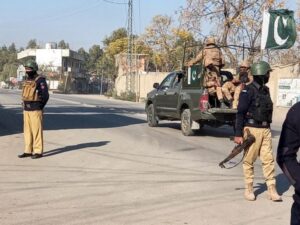
Islamabad [Pakistan], December 17 (ANI): After the announcement of the election schedule, the Election Commission of Pakistan (ECP) has resumed the training of returning officers (ROs) and district returning officers (DROs) in Pakistan, The Express Tribune reported. The ECP’s spokesperson said 850 ROs and 144 DROs are currently being trained by senior ECP officers. The training of the officers is expected to be completed by December 19.
A letter has been sent by DC Islamabad, in his capacity, as a DRO to the Federal Directorate of Education directing that leave should not be granted to employees, according to The Express Tribune report. Authorities have been asked not to allow government employees to take leave, with maternity and medical leaves exempted from the order.
The staff responsible for supervising electoral activities have been asked to remain in the city where they have been posted until the elections set to take place on February 8, according to The Express Tribune report.
On December 13, the Lahore High Court (LHC) at the request of Pakistan Tehreek-e-Insaf (PTI), invalidated ECP’s notification regarding the appointment of the ROs and DROs for elections from the bureaucracy of Punjab, The Express Tribune reported.
The order issued by the Lahore High Court had paused the training of election staff in Pakistan. However, the Supreme Court suspended the LHC’s order and permitted the electoral body to continue the training of ROs, DROs and assistant returning officers (AROs).
The Election Commission of Pakistan (ECP) on Friday night issued the election schedule for the general polls set to take place on February 8, 2024, Dawn reported. The polling process will begin on December 19, when the returning officer (RO) will issue a public notice.
The election programme also applies to the reserved seats for women and non-Muslims in the national and four provincial assemblies of Punjab, Sindh, Khyber Pakhtunkhwa, and Balochistan. Notably, the commission issued the election schedule late at night in line with the Supreme Court‘s orders. (ANI)


















